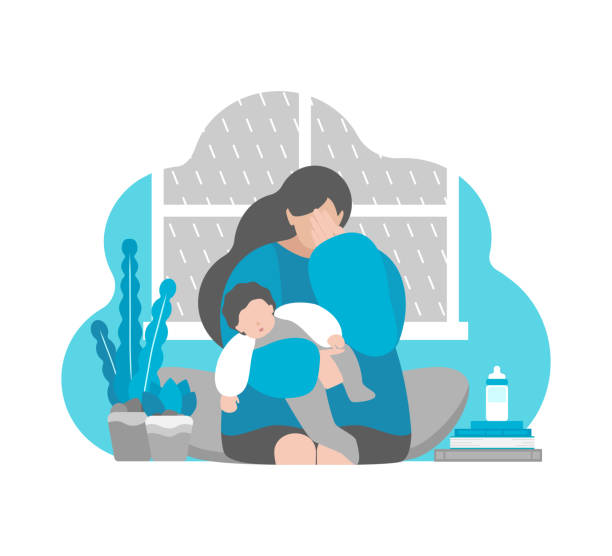Deconstructing Post-Delivery Depression
The process of birthing isn’t a smooth ride. It requires a lot of resilience, perseverance, patience, and care. People who choose to be mothers undergo tremendous emotional, psychological, and chemical changes within the body.
The process of fluctuating hormones throughout pregnancy, and post-pregnancy leads to what is referred to as Postpartum Depression. Postpartum depression usually affects people with a vagina within four weeks of delivery. However, the symptoms are not necessarily limited to the person giving birth. It can affect surrogate mothers, and adoptive parents as well.

Dissecting the ‘whys’ of the Postpartum Depression
The idea of becoming parents and gradually witnessing its manifestation into reality can be an overwhelming experience. The process of providing care to a baby for nine months within the womb is a life-changing experience. According to Clevland Clinic, the levels of estrogen and progesterone increase tenfold during pregnancy only to drop significantly post-delivery.
Significant shifts in the level of hormones contribute to mood changes and blues after giving birth. The intensity of experience determines the consequences of the effect. For example, 70% of people with a vagina experience ‘baby blues’ post-pregnancy that lasts for a shorter span of time. However, Postpartum Depression usually lasts for several months accompanied by feelings of anxiety, overwhelming experiences, and loss of interest in hobbies.

Symptoms of Postpartum Depression
The domain of Postpartum Depression covers a multitude of areas ranging from its physicality to its mental health consequences. Hence, it becomes important to be mindful and cognizant of certain symptoms after delivery. The symptoms of postpartum depression have the capacity to cripple a person’s daily life. This is because it includes feelings of loss of appetite, crying for no reason, loss of interest in hobbies, trouble concentrating on hobbies, and not feeling connected with the child.
Other symptoms, which are often sidelined, are the lack of support from respective partners, treatment by the in-laws’ family, and the mental health of the person giving birth before pregnancy. In countries like India, a person with a vagina’s body is emblematic of the reproductive capacities it possesses that can lead to undue pressure on the mother to rear a child. The decision to give birth, in this case, becomes prone to the judgment of society. Also, the pressure to deliver a ‘male child’ is very much prevalent and makes people with vaginas vulnerable to feelings of anxiety or not doing enough for their child.

Postpartum Depression and Sexual Health
Maintaining optimum sexual health is one of the important aspects of being a healthy human. Postpartum Depression affects the sexual relationship between partner(s) and oneself. The feelings of loss and anxiety lead to lower self-esteem leading to the idea that people don’t find themselves attractive enough. According to Postpartum Progress, lack of enthusiasm can also be linked to lower libido and pain during intercourse. Some people have also gone on to say that they resumed having intercourse quite earlier than they wanted to. The lack of sex drive can also be attributed to physical and mental fatigue owing to taking care of the baby or dealing with the feeling of “not taking enough care of the baby”.
In the same report by Postpartum Progress, some people who gave birth said that they were interested in resuming sex while their husbands weren’t. The reason wasn’t the fact that the husbands didn’t find their partner(s) attractive enough but they were dealing with depression too. Hence, it is important to get checked by the healthcare professionals for any traces of Postpartum Depression in order to feel and be healthy.

Conclusion
The world is witnessing a global change with the pandemic which has caused us to rethink our priorities. There has been a drastic increase in issues pertaining to mental health and it is crucial to be mindful of our thoughts. Postpartum Depression shouldn’t be taken lightly and providing support goes a long way. There should be no apprehension to get tested and feeling guilty for not being able to do enough. Talking to people and seeking therapy always helps in order to be in tune with one’s emotions and battle unhealthy feelings!
Cover Illustration Source: Elite Care Houston
Author

